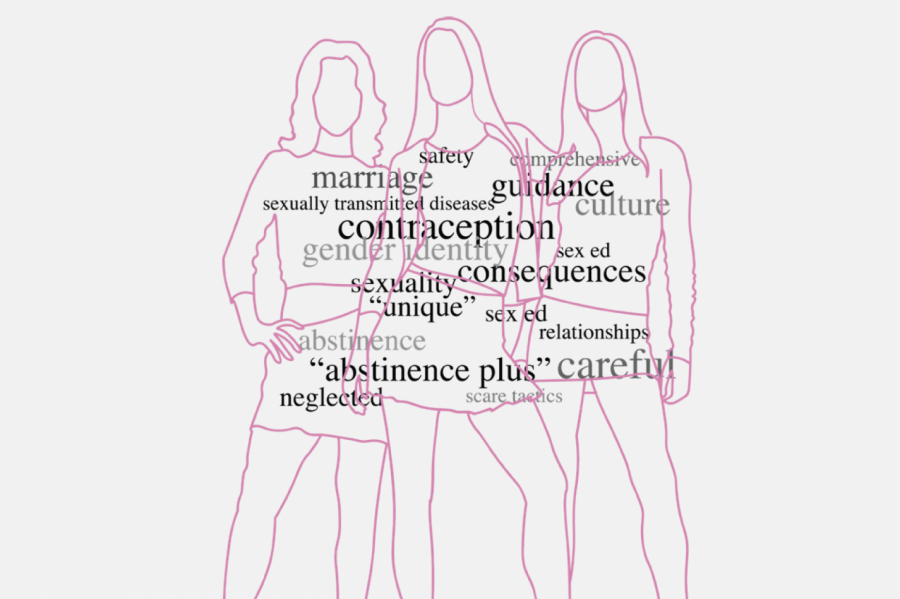The Case for Sex Education
Missing program leaves students without protection
Photo: Sierra Sellers
St. George’s neglected to provide sex-ed in the 2018/2019 school year.
Everybody remembers the scene in “Mean Girls” when the lazy Coach Carr delivers his sum total of sex education: “Don’t have sex, because you will get pregnant and die!” While the depiction of sex ed in movies and TV is laughable, having nothing at all may be even more so. Last year, St. George’s Collierville campus had no formal sex education at all, and it’s been over two years since the middle school has approached the topic. To be fair, sex ed has not been neglected on purpose. Ms. Elizabeth Bran, Director of Counseling and Guidance for the Upper School, attributed the absence to the program being “in a place of transition.”
According to Ms. Bran, the disappearance comes in part due to the departure of Mr. Sam Abrams, the former biology teacher at St. George’s, who used to teach the science portion of the program, but the course has long posed a challenge because of its dependence on guest speakers and lack of a long-lasting curriculum embraced by the school and faculty. Ms. Bran mentioned that time constraints are also a concern because a certain amount of space would need to be made for this course within the limited time already allotted for programming.
While many sex ed programs are available for adoption by schools, Mr. Bladt, Associate Head of School, believes that any program St. George’s uses should be unique. “I think it’s actually important for a curriculum to be developed to be individual to a school,” he said. Mr. Bladt also stated that sex ed has a place in the plan for St. George’s immediate future: “Our Strategic Plan states that we affirm that promoting personal wellness helps students achieve academically while simultaneously attaining health, balance, and well-being.”
So what should a sex education program at St. George’s look like? There are three prevailing approaches that characterize sex ed in the United States: abstinence, “abstinence plus,” and comprehensive.
Abstinence is a method of teaching centered around the belief that teenagers should not have sex, and that information about sex could lead to more teenage sex. Abstinence sex ed programs primarily encourage students not to have sex, sometimes using scare tactics and using a religious perspective to highlight negatives of sex before marriage.
Alternatively, “abstinence plus” programs generally give more information than abstinence-based programs, providing practical and scientific knowledge about contraception and sexually transmitted diseases. These programs vary widely in how much information they give, but teachings are still rooted in the belief that teenagers should not have sex, but that information about it will keep those who do have sex safer.
At the opposite end of the spectrum from the abstinence-only approach, comprehensive sex education covers topics about sex and sexuality with an emphasis on a general understanding of sexual and gender identity. Comprehensive sex ed typically provides the most information, covering the facts of biology alongside the culture and relationships that may involve sexual development.
In the past, St. George’s has used a curriculum modified to be closer to the comprehensive approach. Now, as we consider developing a new program specific to St. George’s, comprehensive is the best, and only viable, approach for the school. Abstinence-based sex ed is too narrowly focused on denying teenagers knowledge about their bodies and the decisions that they will face in the present and near future.
It is the focus on identity and sexual health that makes comprehensive sex education so important. Teenagers in middle and high school are developing rapidly both mentally and physically, and developments in their identity often come too. Teens deserve information relating to sexual health and decisions that may have lifelong consequences, and too few are receiving that guidance and information.
When it comes to challenges that a new sex-ed course will face, there is nothing that should stand in the way of a good program. For example, ample time is found every year for a recurring guest speaker to come and cover subjects of substance abuse and addiction. This is the structure that sex education needs, too.
When the students and faculty feel that a subject, such as sexual health or addressing prejudices, is important enough for students to learn before their days of school are spent, then the time and resources can definitely be found to support it. St George’s, with the support of its community, has the power to make a positive impact on the lives of the students who walk from these halls into the arms of life.













Annie Smith • Nov 26, 2019 at 2:46 PM
Wait, am I seriously this old that in the time I’ve not been at SGIS, sex education has just disappeared?? WTF!! How is this allowed????
Great article by Miles. Maybe a staff editorial demanding it come back?? This whole situation is unbelievable…